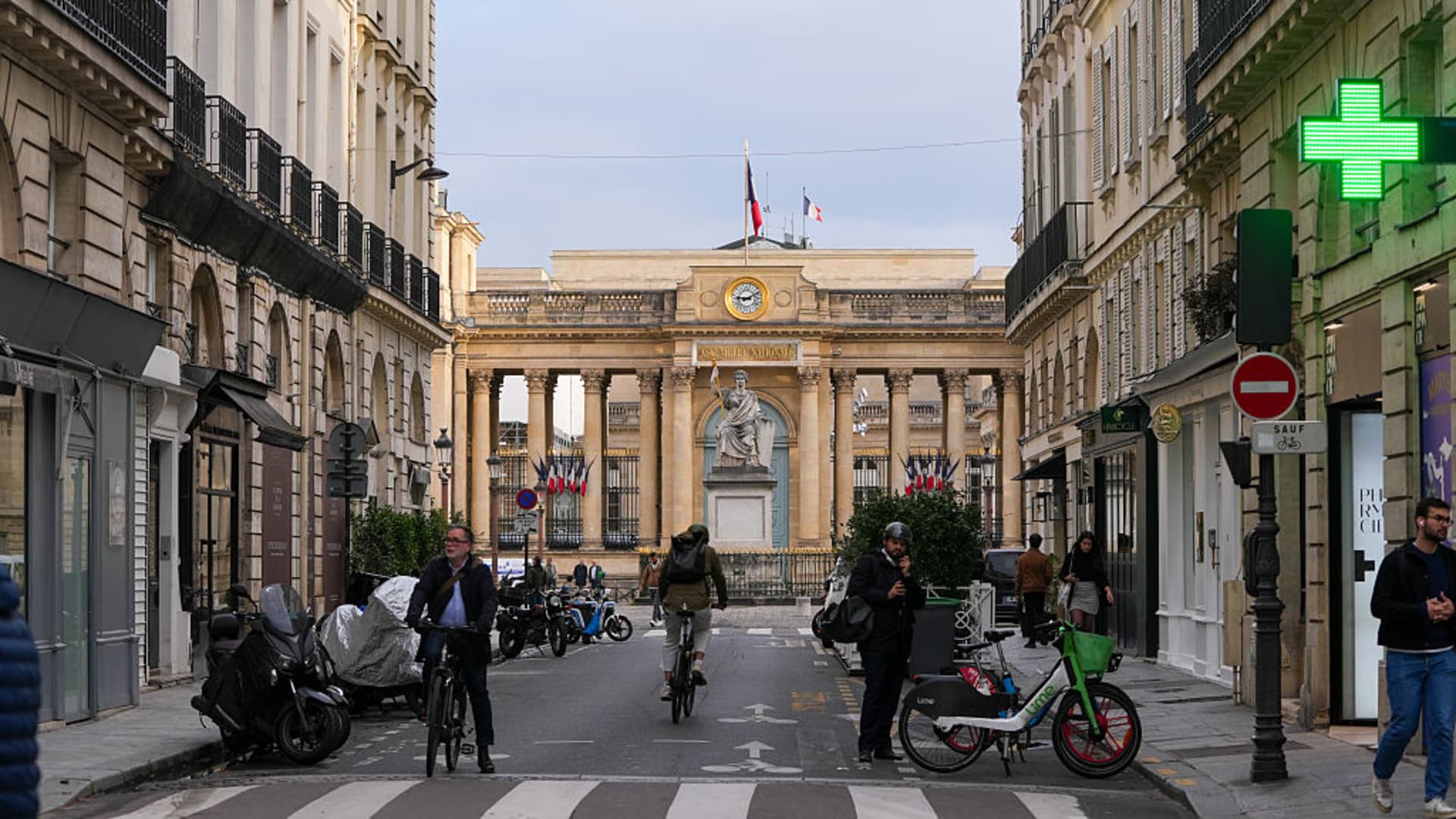Déjà vu in France as political chaos returns. But this time, it’s different

The National Assembly building in Paris, France, on Monday, Oct. 6, 2025. French Prime Minister Sebastien Lecornu resigned Monday morning, just a day after President Emmanuel Macron named a new cabinet that was broadly criticized. Photographer: Nathan Laine/Bloomberg via Getty Images
Bloomberg | Bloomberg | Getty Images
As news of French Prime Minister Sebastien Lecornu’s resignation broke on Monday morning, journalists scrambled to get in touch with government spokespeople to clarify which ministers were actually in charge: the ones Lecornu had nominated only the night before, or the ones that were previously in office before the reshuffle?
That’s how unprecedented and unique the French political situation is right now (and by the way the answer is: the ones nominated Sunday night will be caretaking until a new PM and government are picked).
Thirteen hours after announcing his new government’s cabinet, and just 27 days in the job, Lecornu handed over his resignation to French President Emmanuel Macron.
The political fragmentation after the July 2024 snap election caused this instability, with opposing political blocs emerging in the two rounds of voting that fell far from an absolute majority.
Outgoing French Prime Minister Sebastien Lecornu, who submitted his government’s resignation to the French President this morning, reacts after delivering a statement at the Hotel Matignon in Paris, on October 6, 2025.
Stephane Mahe | Afp | Getty Images
That led Macron to install minority governments that relied upon, and ultimately failed, due to precarious pacts and dealmaking.
On the one hand, there is an air of déjà vu in France now: the next PM will be Macron’s sixth in less than two years.
On the other hand, the current crisis is different: the Lecornu government was not toppled by the opposition, like those of predecessors Michel Barnier or Francois Bayrou — it was its own allies that caused its downfall.
social media platform X that he will report to the president on Wednesday evening on any potential breakthrough “so that he can draw all the necessary conclusions.”
It’s hard to see what Lecornu can achieve in 48 hours, beyond what he’s done since his nomination almost a month ago.
So will the next step be another snap election?
The far-right right led by Jordan Bardella and Marine Le Pen are calling for this. That’s not surprising, since polls show them in the lead with 30 to 35% of the vote.
President of Rassemblement National parliamentary group Marine Le Pen (L) speaks to French far-right Rassemblement National (National Rally) RN party’s President and lead MEP Jordan Bardella during the French far-right Rassemblement National (National Rally) RN party’s parliamentary seminar at the French National Assembly in Paris on September 14, 2024.
Ludovic Marin | Afp | Getty Images
That was also the case last year but eventually a coalition of the left, and a so-called “cordon sanitaire” vote, came top. That coalition between the far-left, communists, greens and socialists has since imploded.
A dissolution of the National Assembly would indeed be the logical democratic choice in the current situation, but there is no guarantee that it would deliver any clearer majority.
Lecornu concluded his resignation statement Monday morning saying, “one must always prefer one’s country to one’s party.”
Last year’s snap election result was a test: would French lawmakers learn to work in broad coalitions like so many of their European counterparts? Fast forward 15 months, the answer is a resounding ‘no.’
[title_words_as_hashtags




